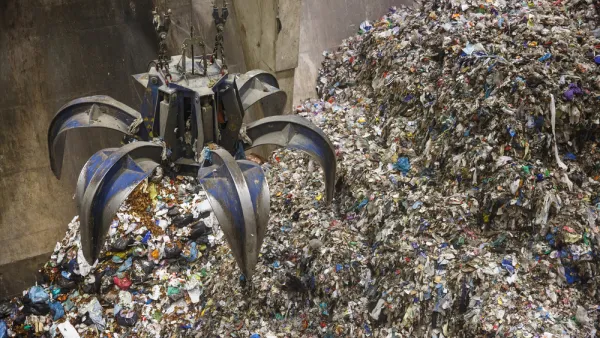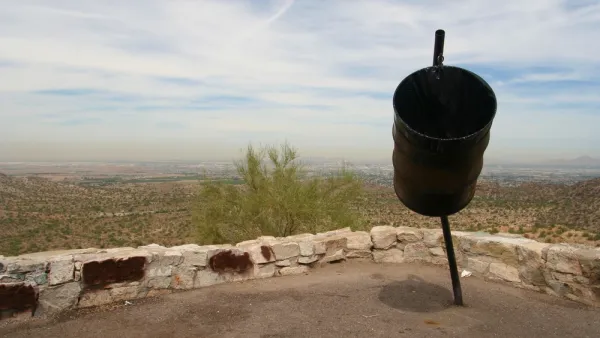Trouble in the global market means trouble at home when it comes to recycling. Municipalities are having trouble paying the extra cost for recycling programs as China stops accepting U.S. waste.

"Recycling, for decades an almost reflexive effort by American households and businesses to reduce waste and help the environment, is collapsing in many parts of the country," reports Michael Corkery.
Corkery cites "hundreds of towns and cities" across the country, including very large examples like Philadelphia and Memphis, that are giving up on recycling as costs spiral beyond feasibility.
"Prompting this nationwide reckoning is China, which until January 2018 had been a big buyer of recyclable material collected in the United States," according to Corkery. "That stopped when Chinese officials determined that too much trash was mixed in with recyclable materials like cardboard and certain plastics. After that, Thailand and India started to accept more imported scrap, but even they are imposing new restrictions."
Recycling companies are charging customers more as a result of the changes in the global market, and municipalities are faced with tough choices about how to cover the extra cost.
Still, sources cited in the article say recycling has been dysfunctional for much longer than the recent crisis indicates. "Analysts say many waste companies had historically viewed recycling as a 'loss leader,' offering the service largely to win over a municipality’s garbage business," according to Corkery.
FULL STORY: As Costs Skyrocket, More U.S. Cities Stop Recycling

National Parks Layoffs Will Cause Communities to Lose Billions
Thousands of essential park workers were laid off this week, just before the busy spring break season.

Retro-silient?: America’s First “Eco-burb,” The Woodlands Turns 50
A master-planned community north of Houston offers lessons on green infrastructure and resilient design, but falls short of its founder’s lofty affordability and walkability goals.

Delivering for America Plan Will Downgrade Mail Service in at Least 49.5 Percent of Zip Codes
Republican and Democrat lawmakers criticize the plan for its disproportionate negative impact on rural communities.

Test News Post 1
This is a summary

Test News Headline 46
Test for the image on the front page.

Balancing Bombs and Butterflies: How the National Guard Protects a Rare Species
The National Guard at Fort Indiantown Gap uses GIS technology and land management strategies to balance military training with conservation efforts, ensuring the survival of the rare eastern regal fritillary butterfly.
Urban Design for Planners 1: Software Tools
This six-course series explores essential urban design concepts using open source software and equips planners with the tools they need to participate fully in the urban design process.
Planning for Universal Design
Learn the tools for implementing Universal Design in planning regulations.
EMC Planning Group, Inc.
Planetizen
Planetizen
Mpact (formerly Rail~Volution)
Great Falls Development Authority, Inc.
HUDs Office of Policy Development and Research
NYU Wagner Graduate School of Public Service





























